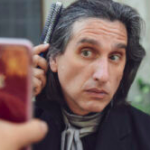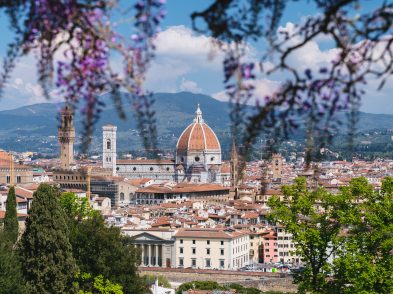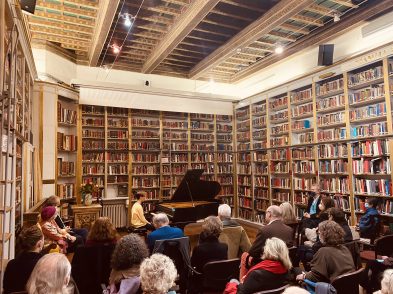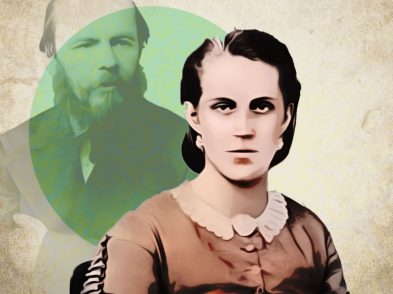It was a grey wintry afternoon in a 1980s Montreal. The snow was piled high and the streets had developed a dirty sludge, but there, on a street called Sherbrooke, on a towering wall of stairs high above the mess of the street sat the copper-green Queen Victoria, scepter in hand, guarding her pride and joy, McGill University’s School of Music. Behind the grand dame, the medieval-looking stone arches herald the entrance to the auditorium. Undefined sound is stirring. I was a 17-year-old student at the School of Music and I opened the door to the auditorium. The once muffled sound now washes over me, wrapping me in its warmth as I hear a soprano…
“Babbo pietà… pie’….,” the “pie’…” floating in the stratosphere on an A-flat major cloud before falling like a feather from the sky onto a cushion of down. I had never heard anything like it. A school administrator was standing at the back of the auditorium in the dark, tears streaming down her face. I needed to know what we had just heard, but I didn’t want to disturb her moment. Once she wiped away the tears, I sidled up and asked what we were listening to.
“O Mio Babbino Caro,” she said, from Giacomo Puccini’s one-act opera, Gianni Schicchi. “It’s set in Florence, at the very end of the 13th century. The aria’s music suggests Florence’s Ponte Vecchio in all its beauty. You must go. There is nothing in the world like it.”
“And who is the girl singing this aria?” I ask. “Her voice is so beautiful, and so is she.”
“Her name is Gianna Corbisiero. She is 18 years old and she has just come to us. She will be our diamond.”
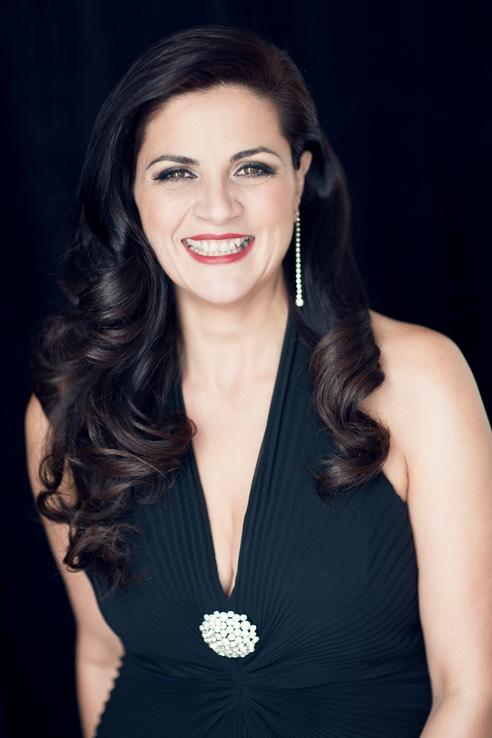
Gianna Corbisiero
Thirty-two years later, I remember that encounter as I stand on the Ponte Vecchio, mesmerized by a sunset from another world that has graced us with its presence. I had again decided that it was a day to lose myself in the mysteries of the magical city that I now call home. Why the city herself is a salve during these trying times is hard to explain, but for perhaps her ability to remind me that, throughout all of history’s tribulations, we maintain the need for beauty. Florence, with her hills, sun, and millennia of nature and humanity plying their beauty in tandem, fills the soul with the nourishment it craves.
Earlier that afternoon, I began my journey into the past by standing in front of Dante’s church, where it is believed the poet first saw his muse and the woman he was to love from a distance his entire life, Beatrice. So romantic is the story that, to this day, visitors, passersby, those hoping to find love, reconciliation or just happiness leave notes to the memory of Dante and Beatrice, which are left in the church or edged into the crevices of the stones and wooden doors. The whole while I am hearing Puccini’s aria “O Mio Babbino Caro” in my inner ear as an underscore to the historical film in which I’m now but a meager supernumerary, an “extra.”
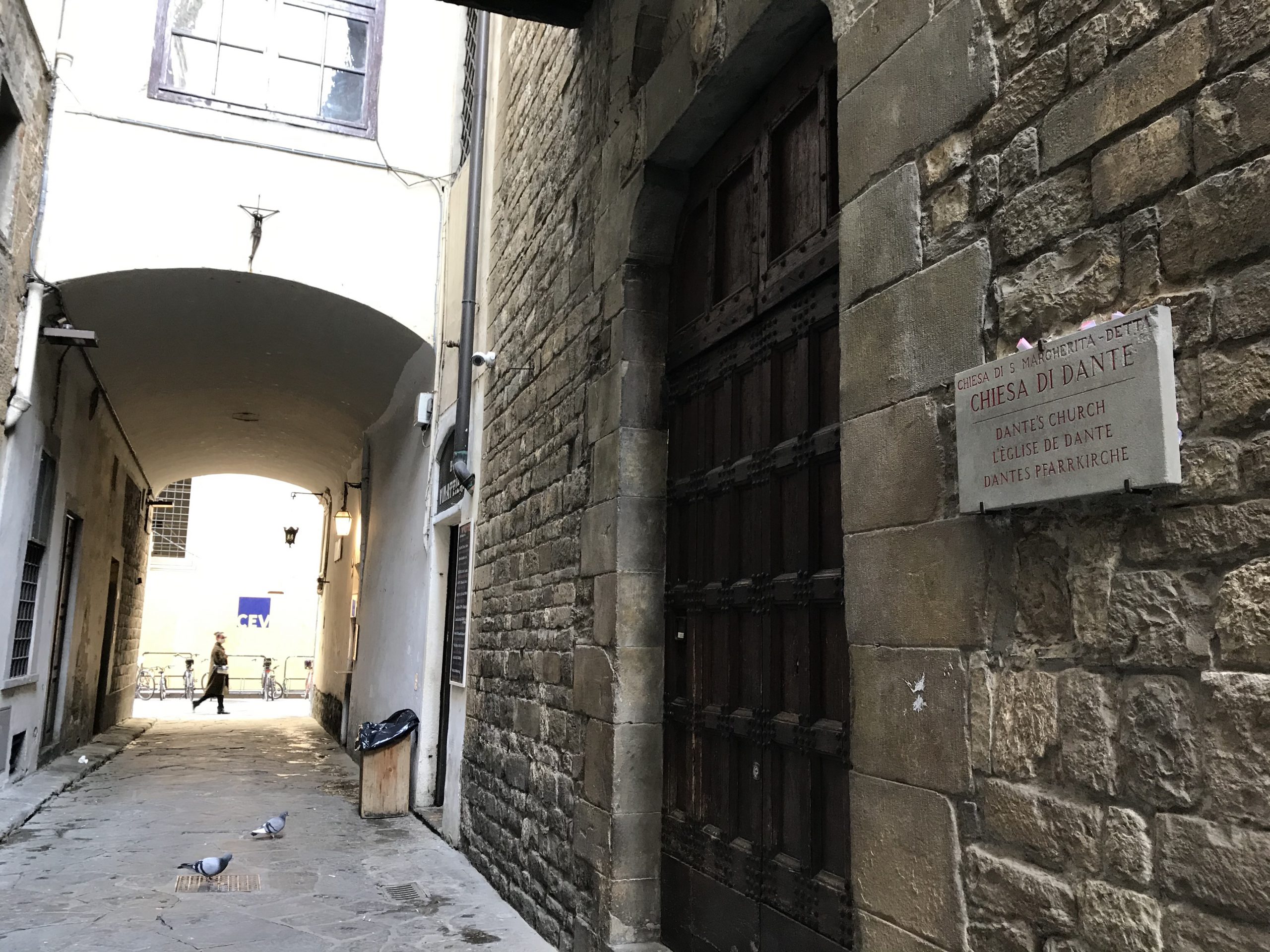
Santa Margherita de’ Cerchi church, aka Dante’s Church, Florence / ph. Helen Farrell
Gianni Schicchi is a Florentine tale drawn from a mention in Dante’s ‘Divine Comedy’, Inferno, Canto 30. Dante visits the circle of the dishonest and he sees a man savagely attacking another. He is told that the man has been condemned to hell for having impersonated Buoso Donati, and making Donati’s will favorable to himself. That impersonator is Gianni Schicchi. It’s a terrible story that Puccini, with his “divine in(ter)vention”, turns into a rip-roaring comedy of greed, jealousy, manipulations, slapstick antics and love, all of which is musically embodied in his opera of the same name, including “O Mio Babbino Caro”, in which Lauretta, who wants to marry her beloved, tells her father Gianni Schicchi that, if she won’t be allowed to marry the man she loves, she’d rather go the Ponte Vecchio, throw herself into the river, and drown. It is perhaps the most famous and most beautiful of all of Puccini’s arias, honest and simple, grand and operatic in gesture in the only way even the smallest things can be operatic in life in Italy.
I make my way through the ancient passages from the Chiesa di Dante to the Ponte Vecchio, the glorious underscore accompanying me as I walk as Dante did, as Puccini himself did, for he knew Florence well. Though his birth home was in Lucca, with its hidden gems of art and stories, and his residence was (and still is; he is buried there) at Torre del Lago, his doctor was in Florence, the doctor who diagnosed him with the throat cancer that would take away his speaking and musical voice, leading to the year of his passing in 1924. What must Dante and Puccini have felt like as they wandered these streets? I wondered how much more they would have had to say, had they been given more time on this earth.
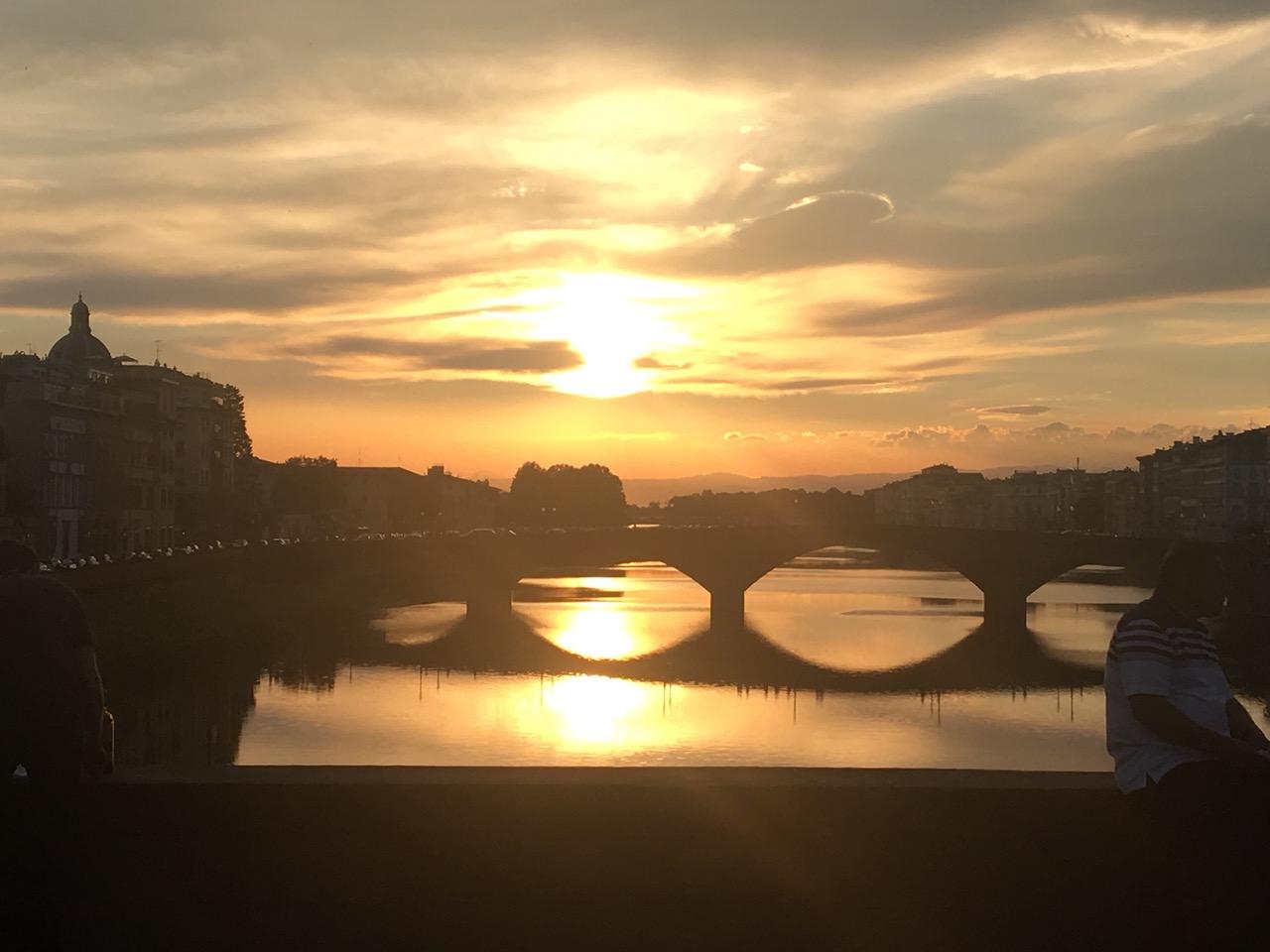
Multitudes of gold on the Ponte Vecchio / ph. Hershey Felder
As I arrive at the Ponte Vecchio, the sun is setting, bathing the city in multitudes of gold. I remember that day, 32 years before, hearing the lovely Gianna Corbisiero sing “O Mio Babbino Caro”, the character threatening to throw herself off the bridge into the Arno if she could not marry the man she loves, while a school administrator cried and said that I “must go to Florence to the Ponte Vecchio, for there is nothing in the world like it”. Thirty-two years later I am here, living my dream in Florence, and my longest-time friend in music, that “diamond”, Gianna Corbisiero, who sang that day when I was just a boy and first heard the aria, has joined me. Together, we are creating a musical and cinematic story about Giacomo Puccini, elements of which we will film in Florence, during this most complicated of times, with the music as an underscore to the city we love.
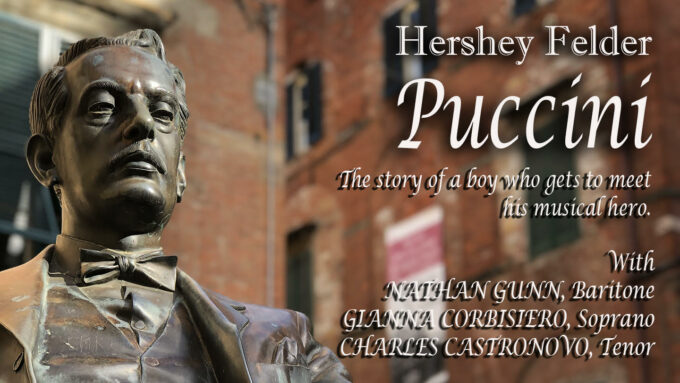
Hershey Felder as Puccini
With Nathan Gunn, Gianna Corbisiero and Charles Castronovo
Sunday, March 14, 2021 at 5pm Pacific / 7pm Central / 8pm Eastern
Includes extended viewing access through Sunday, March 21
Tickets now on sale (55 US $ / 45 euro per household): theflr.net/puccini-tickets
A percentage of ticket sales will be generously donated to The Florentine and other cultural organizations.
Hershey Felder as Puccini is the story of a young musician in love with the world of opera, and in particular Giacomo Puccini’s La bohème, Tosca and Madama Butterfly. When, through a series of unusual circumstances, the young musician meets the musical master himself, secrets are revealed that send the young man soaring. With special guests, baritone Nathan Gunn, soprano Gianna Corbisiero and tenor Charles Castronovo, this new Hershey Felder creation spurs the imagination and moves the musical soul. The movie is filmed and performed on location in Lucca, in the home where Giacomo Puccini was born.
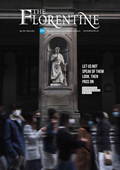
This article was published in Issue 276 of The Florentine.

